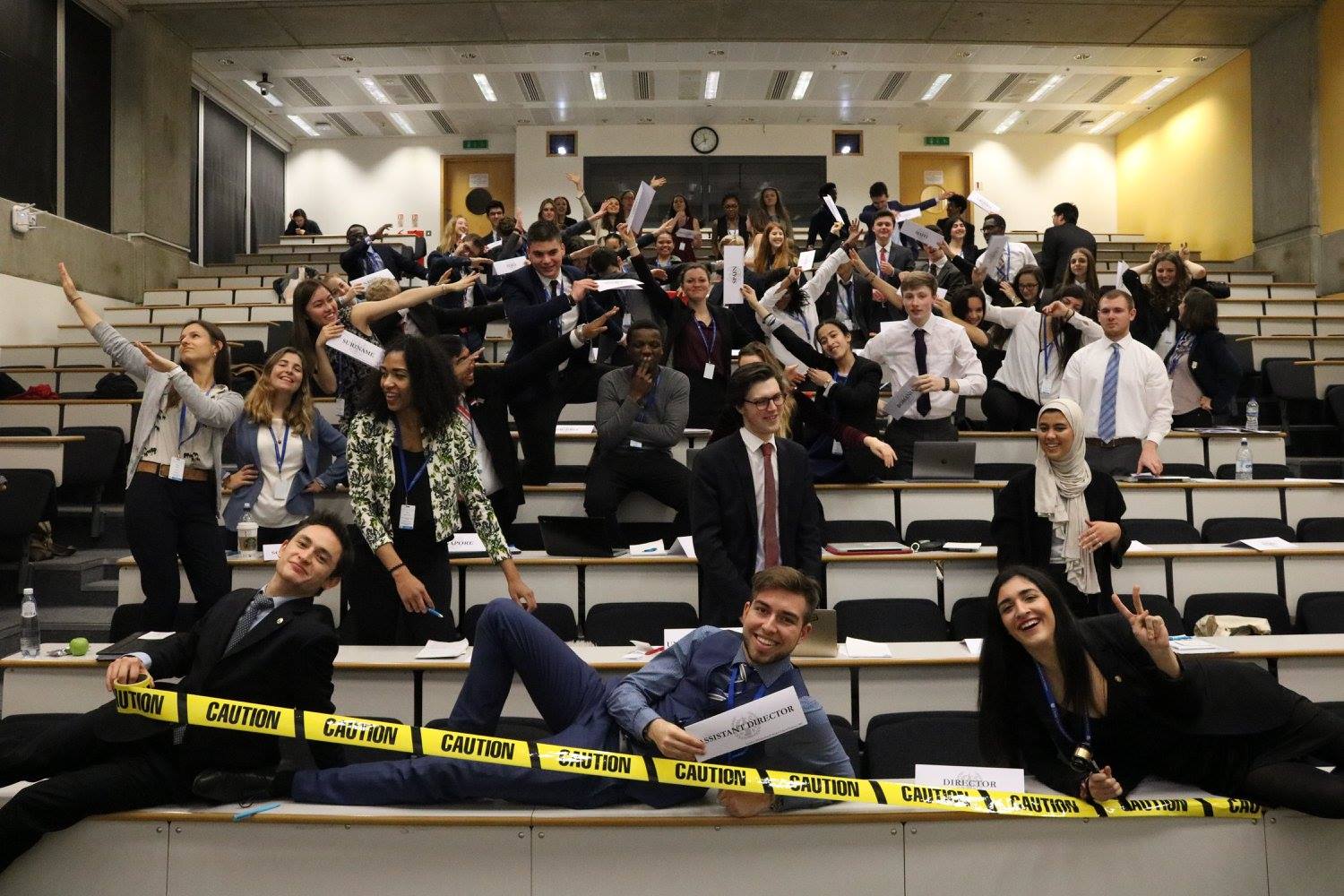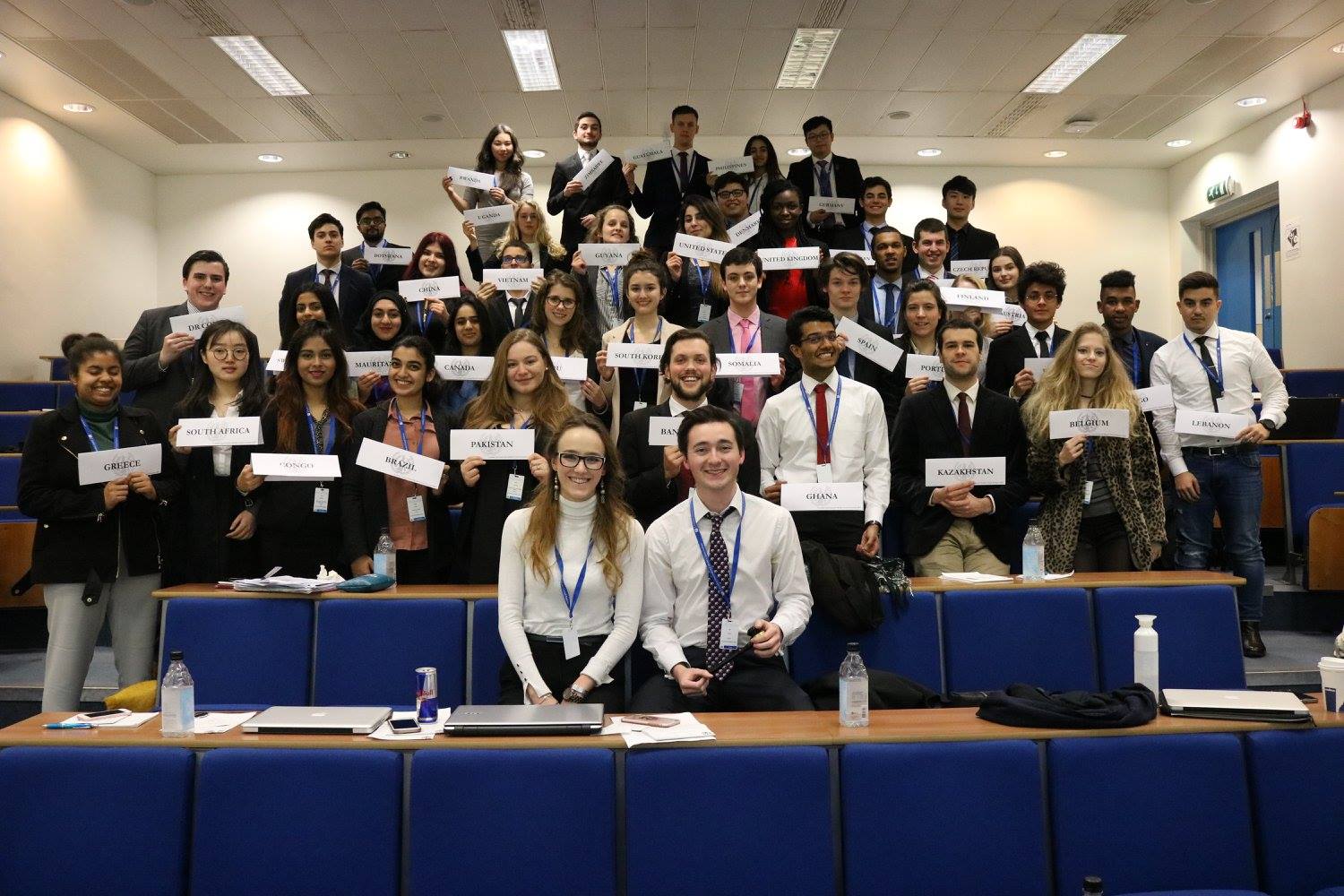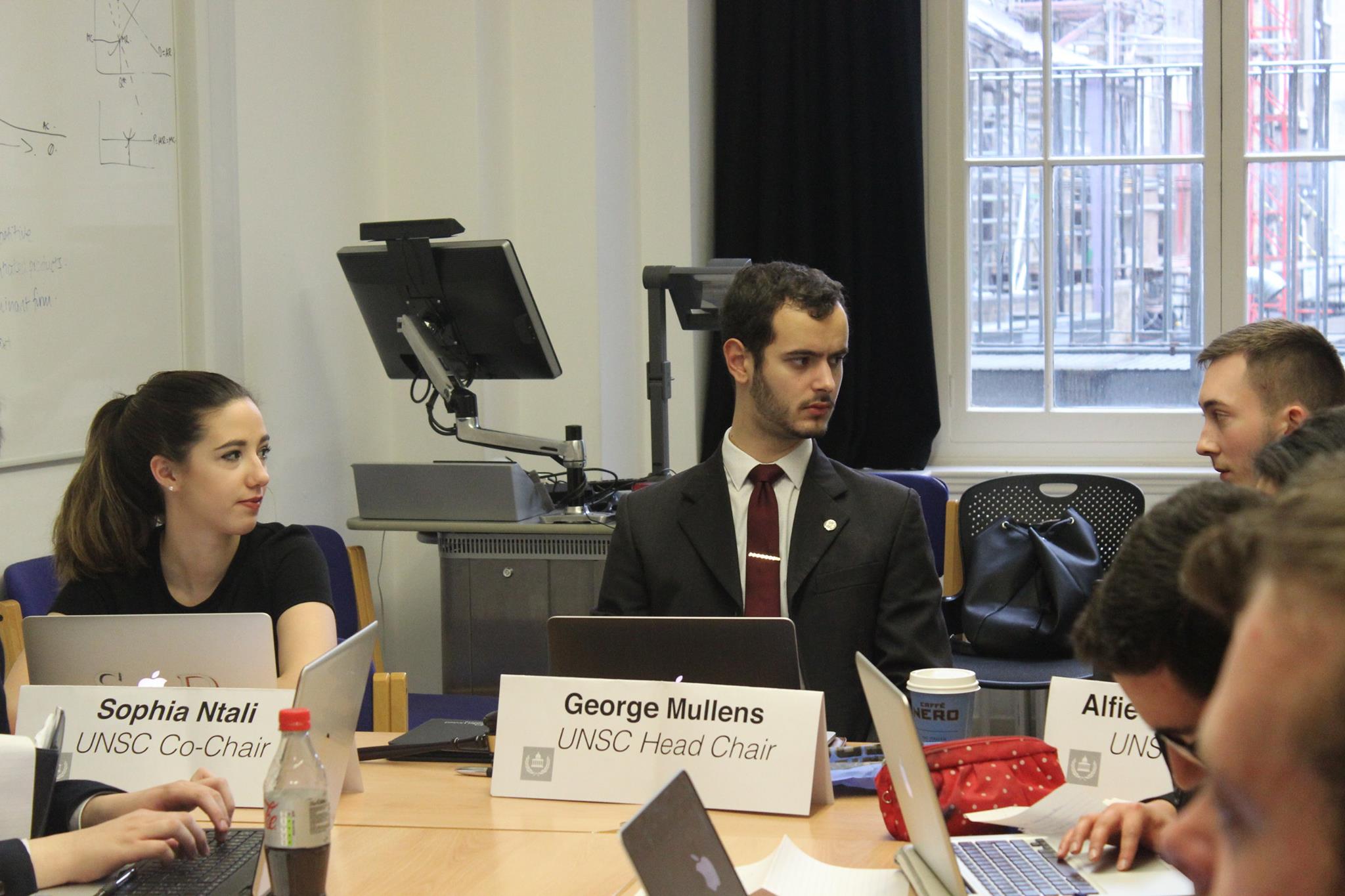
UNDP at LIMUN 2017
Introduction
In this series of articles, we have answered the following questions:
- What is a chair?
- What software should you use whilst chairing?
- What style of chairing is the best?
- How do you write a study guide?
In order to finish this series, I wanted to spend some more time looking at the qualities that make a good chair, an excellent one, whilst pondering the future of chairing at Model UN conferences.
How to be an excellent chair
As I’ve noted in a previous article, a good chair should be strict with rules of procedure and knowledgeable on the topic and the mandate of the committee, but should also have a fun and approachable demeanour when chairing. Ultimately, whenever I chair I always think of chairing as follows: you want all of your delegates to enjoy themselves whilst learning about issues of international importance.
It can be tempting to be authoritarian, laid-back or interventionist within your committee. But none of these styles will result in the best chairing. Instead, a steady combination of paying attention, strict observance of the rules of procedure, without being too harsh to delegates over their mistakes, and friendliness towards all of your delegates is the best way to ensure that your delegates will have an enjoyable time at a conference.
In many ways, the role of a chair in MUN is very similar to that of a teacher, albeit for a limited amount of time and nowhere near as much of an age gap.
Think about it like this. When you’re sitting in class at school, which were or are your best teachers? Were they the teachers who sat down whilst you copied out a power-point word for word? Were they the teachers who were so severe that no one spoke in class or dared to raise their hand? Or were they the teachers who constantly intervened into your work, not giving you time to write a sentence in your notebook before being interrupted?
None of these teachers had the best ‘style’. The laidback teacher inadvertently encourages for you to be lazy in class and to not care about the subject they’re teaching. The authoritarian teacher creates fear in the classroom. The interventionist teacher didn’t give you time to think about what you’re writing and didn’t give you the independence required to write a good quality piece of writing before asking for feedback or comments. None of these would academically benefit you.
The best teachers are those who are prepared, strict when they have to be, give you friendly, yet constructive comments when you hand in your homework and are approachable enough for students to feel comfortable to ask for advice. The best teachers are those with velvet hands in iron gloves.

ECOSOC at LIMUN 2017
An excellent chair at a MUN conference will adapt to the level and speed of the committee that they’re chairing. If you’re chairing a beginner committee with delegates who have never even heard of MUN before, then explain the rules of procedure in a patient manner, encourage people to speak, suggest ways that the debate could go forward, and help them with draft resolution writing. On the other hand, if you’re chairing an advanced committee with only experienced delegates, then challenge them to find solutions, point them towards the most difficult issues within the topic and give them the flexibility to find solutions themselves, rather than interfering within the draft resolution writing process. Yet an excellent chair will know the limitations of the committee they’re chairing and what are the appropriate solutions for the committee that they are simulating.
Chairing is about flexibility, it’s about altering your expectations and objectives depending on the conference you’re chairing at and who you are chairing with. Having clear communication with the secretariat, co-chairs and delegates is vital in ensuring the smooth running of a committee. The time you chair with your co-chairs needs to be evenly distributed to ensure fairness and collaboration between all members of the dais. Secretariats have a tremendous amount of work to deal with whilst running a conference, provide assistance when needed, write study guides on time and make them certain that you can handle your committee without a hiccup. If the Secretariat knows that they can trust you with the delegates they assigned to you, then you’re doing an excellent job.
We all remember that time when we walked into our first ever conference. I personally had no idea what I was doing. I wasn’t trained, I didn’t know anything about my topic, country or the United Nations at large. I was scared and terrified of the possibility of embarrassing myself. I remember speaking for the first time, I must have spoken for only 20 seconds, but then I received a note from my chair stating: “good speech! 🙂 ”
If I look back at it now, that speech wasn’t particularly good, interesting, or mind-blowing. But that little bit of encouragement in the form of a note set me down a path that I have never regretted.
Excellent chairing is about giving this feeling to all of your delegates. To make them know that their voice is worth listening to, and that you as a chair want to know their opinion as not only a delegate of their country, but as a person. Every delegate has felt a sense of fear when entering a conference, you have a duty as a chair to make that sense of fear vanish, to encourage them to take part, and to make them enjoy the life changing experience that Model United Nations provides.

The United Nations Security Council at UCLMUN 2017
The Future of Chairing
Technology and competition, are in my eyes, the future of chairing. With ever increasing software platforms and apps for chairing committees, the days of chairing with just paper and a stopwatch are gone. The use of google docs for counting the times a delegate has spoken, and having a projector showing the amount of time remaining for each speech is clearly the way forward for all conferences, large and small.
Within European conferences, competition for chairing positions at MUN conferences has resulted in a definite improvement of debating standards across the board. While it is possible to make an argument that the presence of top delegates only chairing at conferences has reduced the quality of debate, I firmly believe that the competition has resulted in an extremely high standard of chairing, meaning that more and more delegates are joining conferences.
For me personally, competition for chairing positions at all conferences should be an open application process to be decided based on the experience of candidates and through an interview process. The selection of chairs for all positions, regardless of whether it is as an Assistant Chair or Head Chair should be done on the basis of competition and merit, not limited by institutions. Ultimately, the best practices of delegates and award winning delegations are passed down through merit. The best delegate award will go to the best delegate. Similarly, the best chairs should be chairing at the best conferences through a meritocratic system, to ensure that all delegates have an excellent experience within their committee.
Conclusion
The future of chairing at MUN is bright and prosperous. Improvements and change might seem hard to accomplish, but the reality is that chairing is the most fundamental human aspect when it comes to a delegate enjoying a conference. You can have the best venues, the best speakers and the most incredible socials, but if the quality of your chairs is poor, then delegates will not enjoy themselves. The better the chairing, the more likely it is that your delegates will want to attend your conference again and will want to attend more conferences, thus turning a shy and scared delegate to a skilled and informed public speaker with a desire to promote the values of the United Nations.
Tell us about your chairing experiences, and what marks a great chair in the comments below!
George’s other pieces
Chairing for Beginners Part II: Styles of Chairing and Software


